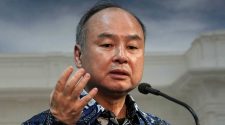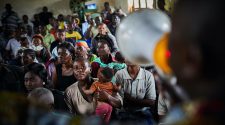Many people in Hawaii suffer from food insecurity and delays in health care access largely due to pandemic-induced financial woes, according to a survey released Tuesday.
Nearly six in 10 respondents, or 58%, said they had experienced health care delays in the past year, with 21% characterizing the wait time as “significant.”
The survey showed that 52% said they had cut their food and grocery budgets, while 36% reporting cutting back on medical care or medicine because of financial reasons, with 40% blaming the coronavirus pandemic for increasing their economic problems.
The findings were based on a mostly online survey of 3,287 residents and 324 health care providers, which was conducted from April 1 to May 9 by Community First Hawaii, a nonprofit health advocacy group.
Health care providers and the community blamed doctor shortages and a lack of psychiatry and behavioral health specialists for the delays, according to the survey. It singled out psychiatry and mental health counseling as professional areas needed most.
Twenty-eight percent of respondents reported that “they and/or a family member are in need of counseling or coping skills.”
The survey also warned the situation would likely get worse with many health care providers saying they were considering reducing their hours (52%), leaving or retiring from medicine (53%) and/or moving to the mainland (49%).
Some of the biggest complaints from the respondents were not being able to get to appointments, being told to go to urgent care instead of seeing primary care physicians, feeling rushed at appointments, delays in testing and diagnoses, and having to travel long distances to find providers.
A majority, or 55%, of the respondents deemed their communities healthy. But economic inequities were evident, with low-income people dependent on Medicaid as well as rural areas suffering the most under the current system, according to the analysis provided by the group.
Pacific Islanders also reported “overt discrimination” and raised concerns about a lack of translators and cultural awareness.
President of Grove Insight Lisa Grove, who moderated the survey, called the findings “heartbreaking.”
“The other thing that was heartbreaking was looking at the responses from people talking about their mental health woes, especially parents talking about their teenagers and how they can’t access care,” she said.
It provided no calculated margin of error because it was conducted mostly online, but the methodology section said that by setting sampling quotas and weighting the demographic composition to the true population it was providing “a representative snapshot of Hawaii at this point in time.”
Community First Hawaii said it plans to convene a working group to look at the survey’s findings and come up with solutions.
Civil Beat’s health coverage is supported by the Atherton Family Foundation, Swayne Family Fund of Hawaii Community Foundation, Cooke Foundation and Papa Ola Lokahi.

















